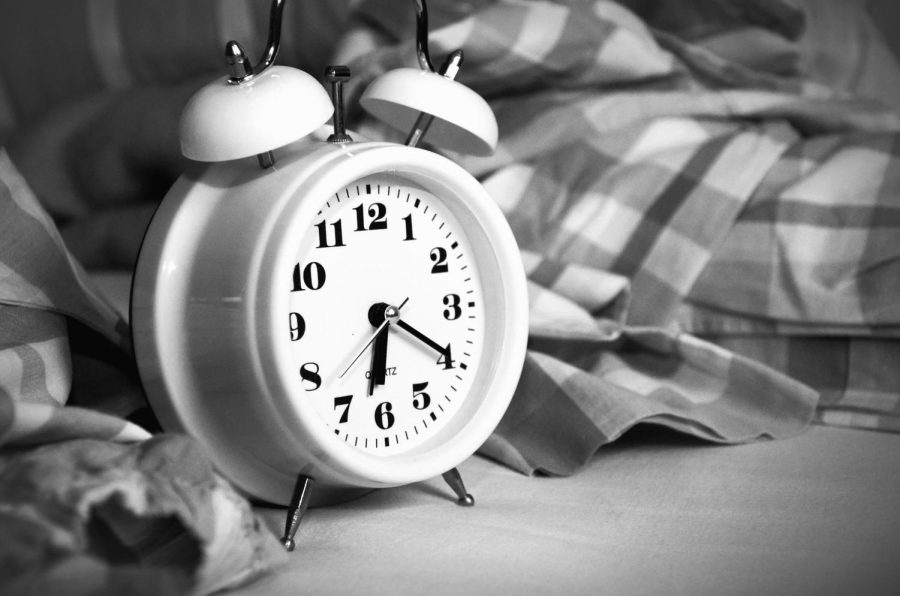Senate Approves Permanent Daylight Savings Time
Daylight saving time might be here to stay, as legislation eliminating biannual time changes has begun making its way through Congress.
March 22, 2022
On March 15th, the Senate unanimously passed the Sunshine Protection Act, a bill that would change most of the United States to observe only daylight saving time, with the intent to begin November 2023. And while the bill still needs to make it through the House of Representatives and be approved by President Biden, the topic was immediately controversial.
The History of Springing Forward and Falling Back
Biannual time changes first began in America during World War I, in an effort to save energy. Though the switch was removed after the war ended, it was soon brought back during World War II. This time, citizens wanted to keep the time change. In 1966, Lyndon B. Johnson signed the Uniform Time Act into law, with the purpose of standardizing time switching within a state.
Since then, the United States has kept to springing forward and falling back, with the exception of 1974. In January of 1974, President Nixon attempted to make daylight saving time permanent, which soon resulted in immense disapproval. While most Americans originally wanted to do away with biannual changes, support rapidly decreased and the shift returned only ten months later. Today, public opinion has returned to the desire to stick to only daylight saving time, with a 2019 survey reporting 71% of Americans not wanting to change their clocks.
Outside the U.S.
Most of North America, Europe, and New Zealand observe biannual time changes, along with some parts of the Middle East, South Africa, and Australia, though the dates of the change vary. Much of Africa and Asia don’t switch at all. Brazil recently eliminated daylight saving time and many are unhappy with how the sun rises at 4:30 a.m. While the bill passed in the Senate is getting rid of standard time instead of daylight saving time, Brazil’s time change resembles the situation in the United States as many Brazilians are rethinking their support of not having a switch, just like Americans fifty years ago.
The Opinion of Sleep Experts
Most sleep experts agree that biannual switches should be changed but think that the Senate has it wrong – standard time should remain. In 2020, the American Academy of Sleep Medicine called for the elimination of daylight saving time, stating that standard time more closely aligns with the daily rhythms of the body’s internal clock. If only daylight saving time is observed, most people will get up in the dark.
Experts say that people will feel more tired, as sunlight sends signals to the body to wake up. Getting up far before the sun does would suppress melatonin, causing “social jetlag”. Though conflicting, the Sleep Foundation reports evidence that sleep duration, sleep quality, circadian rhythm, and sleep disorders, all things that could be impacted because of changing of the clocks, can affect cancer risk. On the flip side, the sun setting later would likely reduce seasonal depression.
Predicted Economic Impact
With more sunlight in the evenings, outdoor businesses will be able to be open longer and have the opportunity to generate more revenue. Additionally, studies showed that after the Energy Policy Act, legislation passed in 2005 that added four extra weeks of daylight saving time, the amount of energy saved was relatively small.
Safety Concerns
While only following daylight saving time is said to prevent the small increase in car crashes, heart attacks, and strokes associated with the change, other safety concerns would arise. Kids would have to go to school in the dark, adults would have dark commutes, and accidents are highly probable because of the lack of light. In contrast, MIT Press Direct says an extra hour of light in the evenings would lead to less crime, as a large amount of criminal activity happens under the cover of darkness.
Permanent Daylight Savings – Opinions Differ From Person to Person
There are many pros and cons of the Sunshine Protection Act that is making its way through Congress. Parts of the United States such as Hawaii, most of Arizona, and Puerto Rico would not even be impacted as the bill won’t change regions already observing one time. Regardless of personal opinion, it will certainly be interesting to see if history repeats itself.












